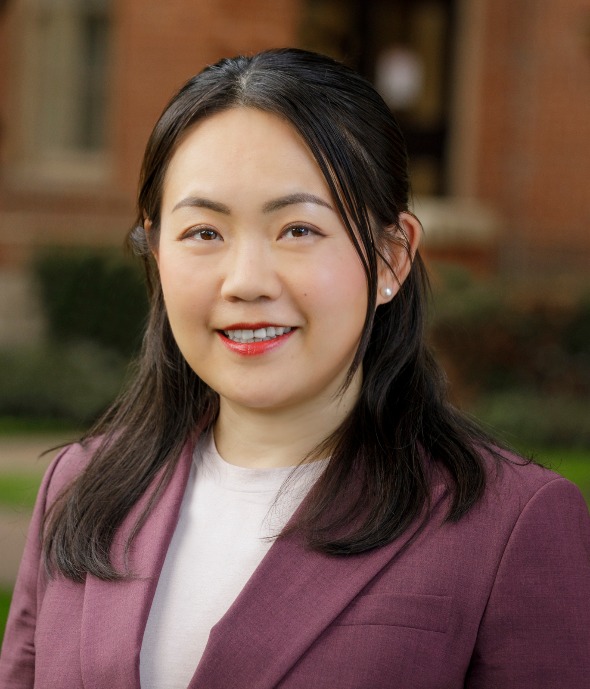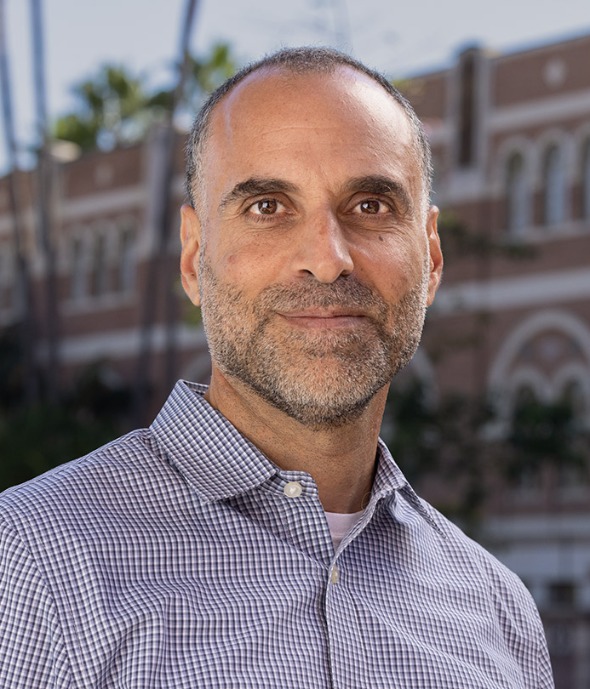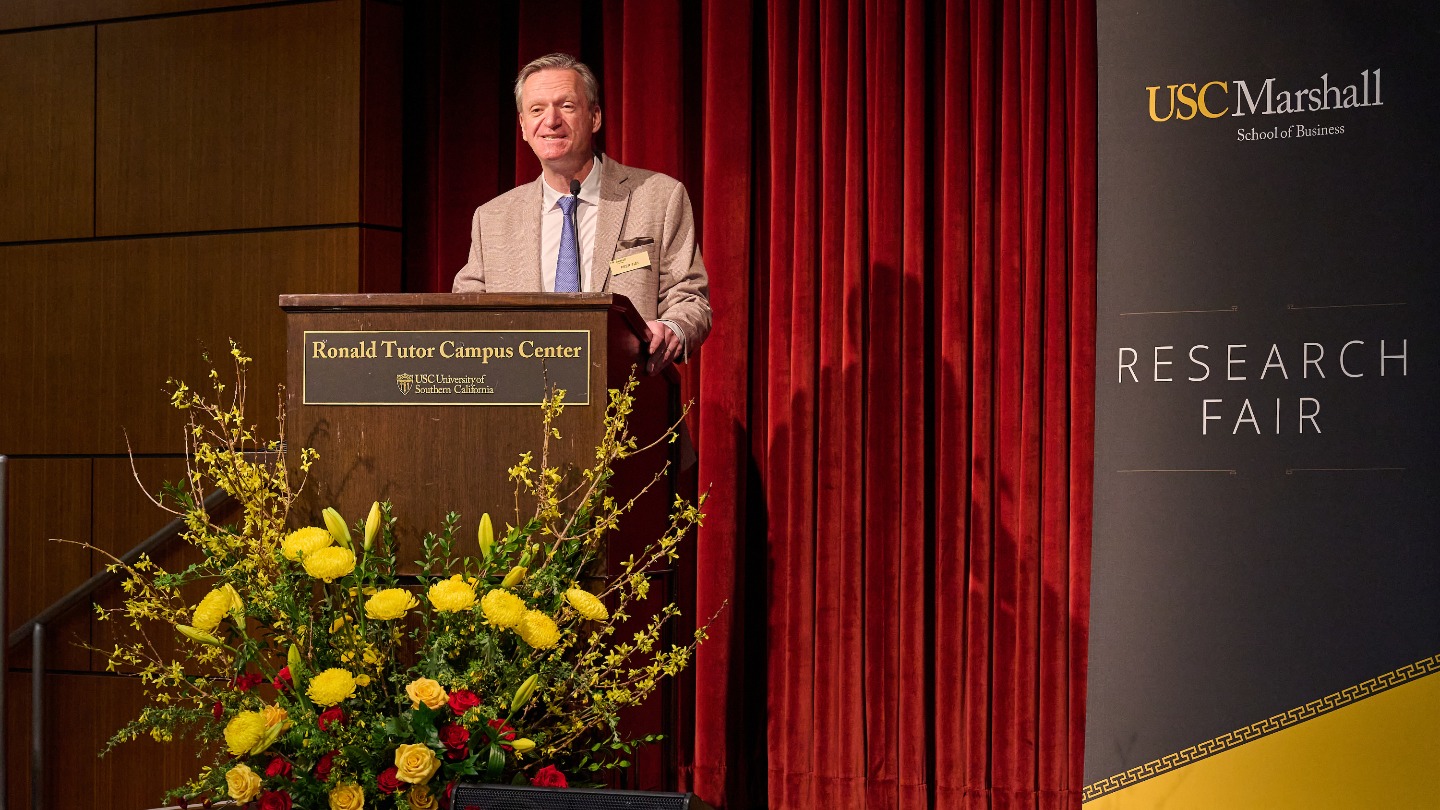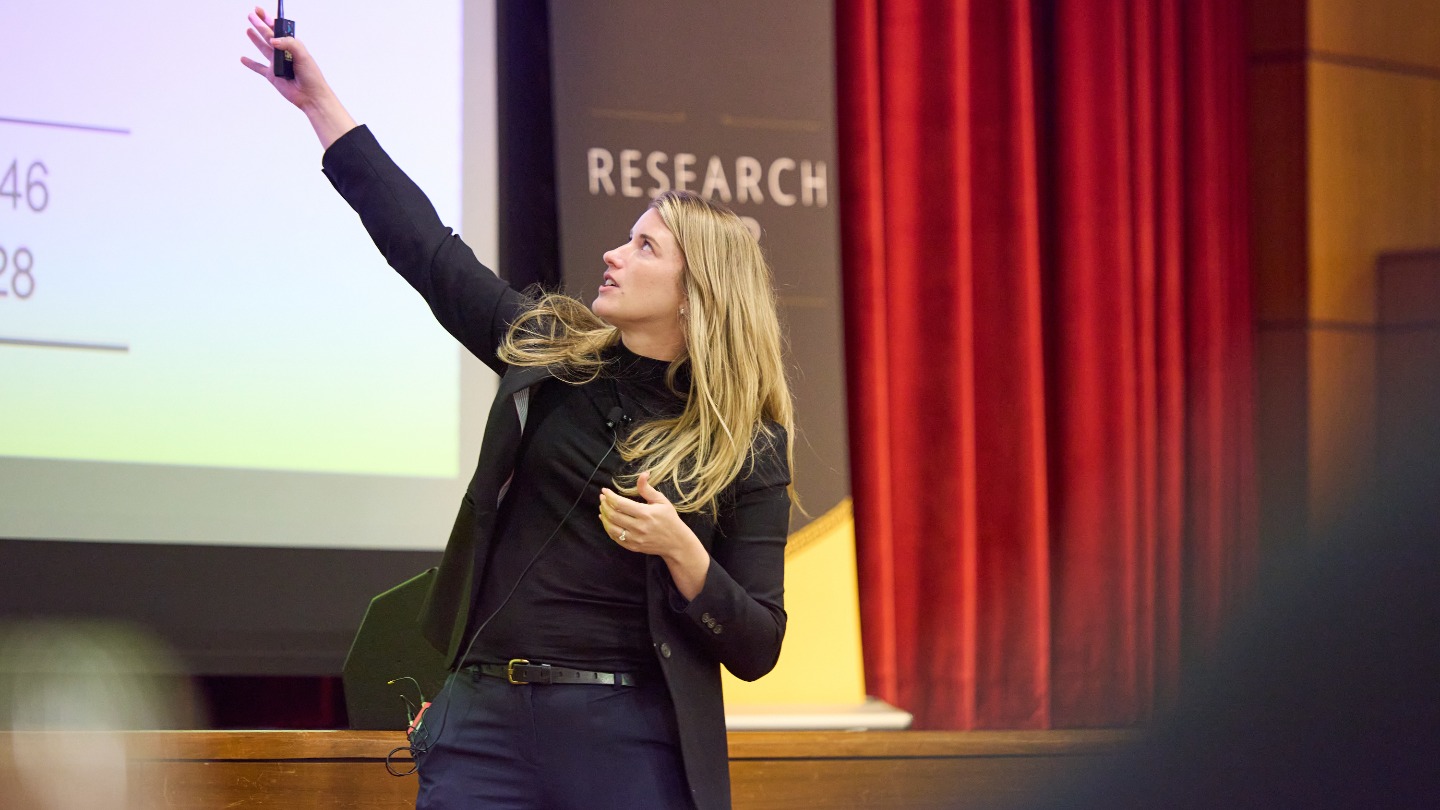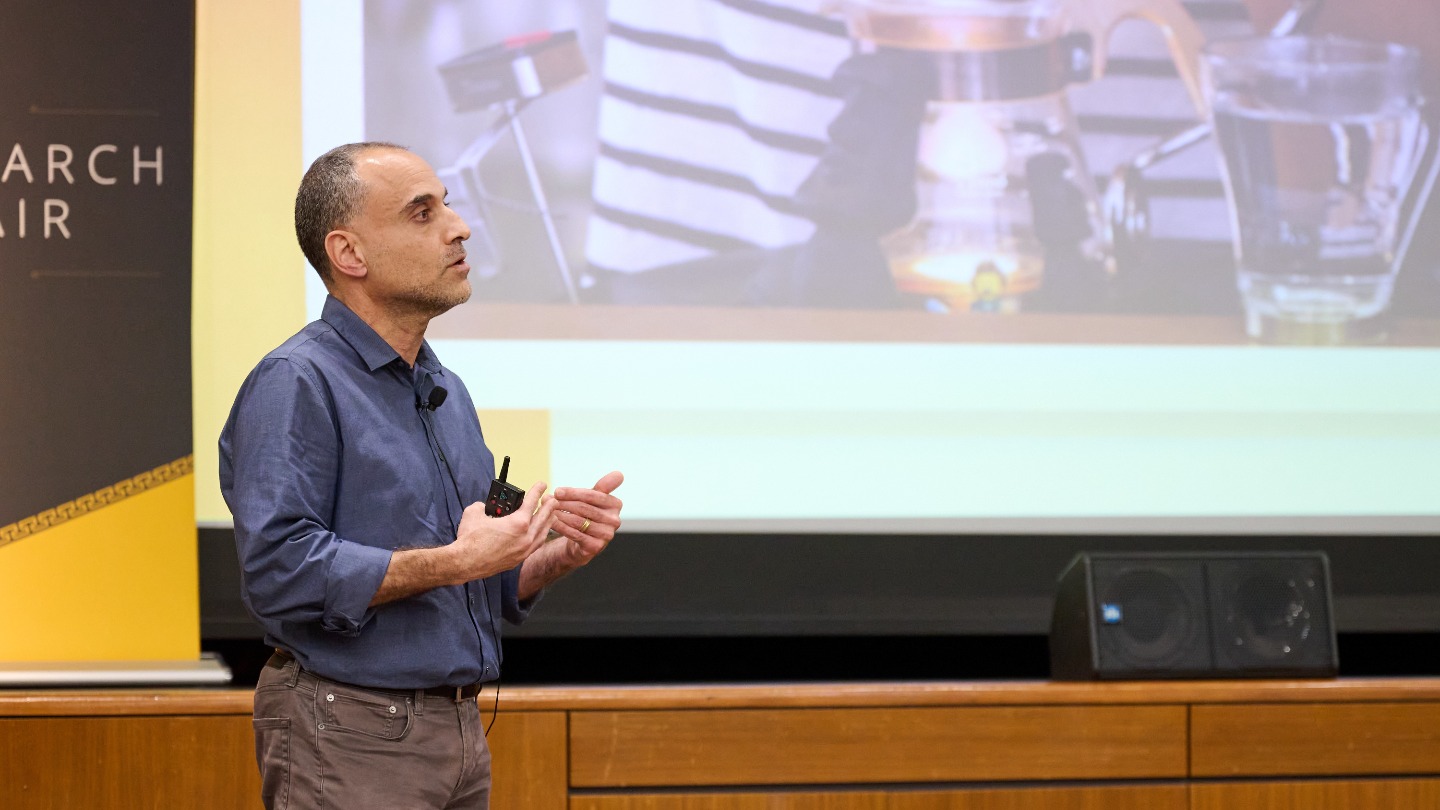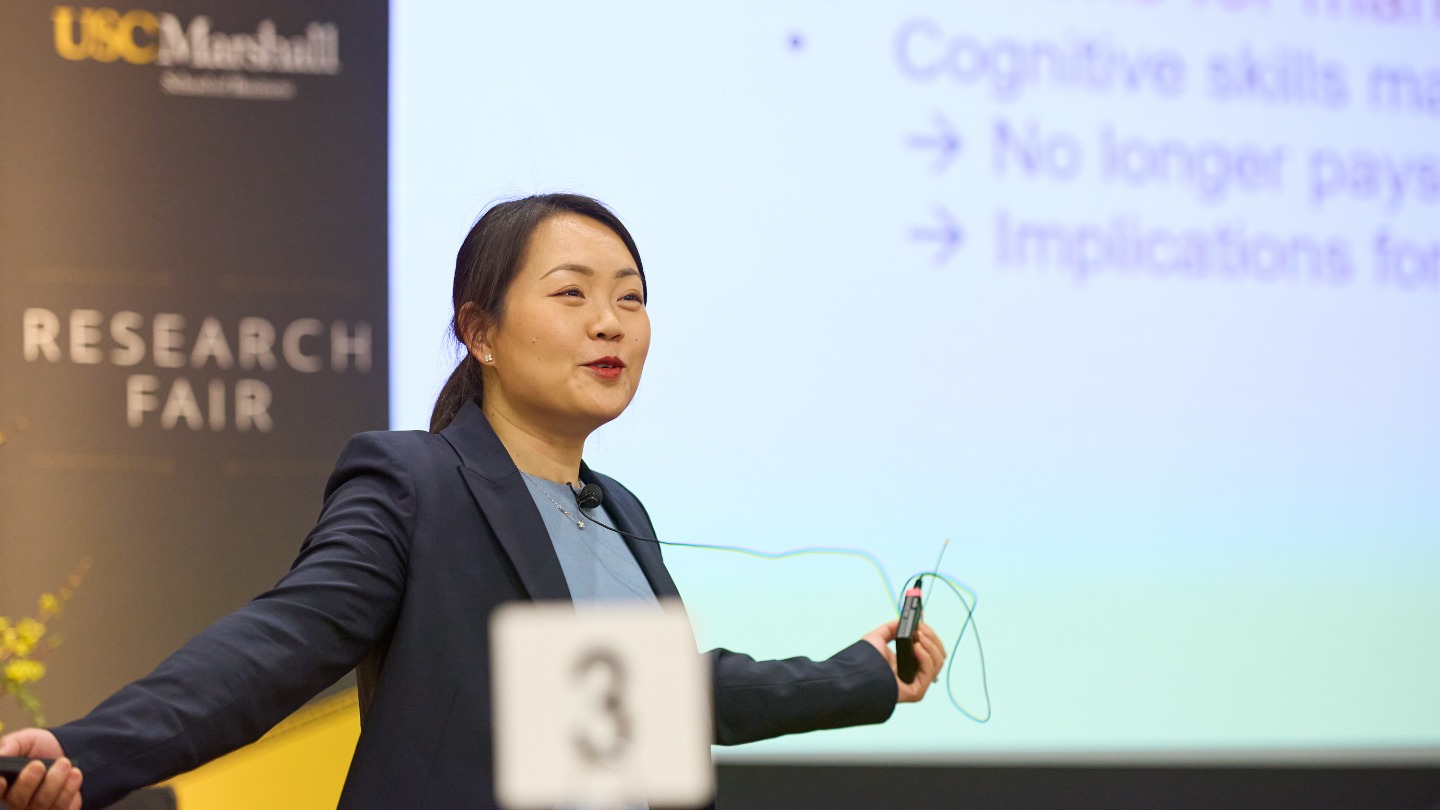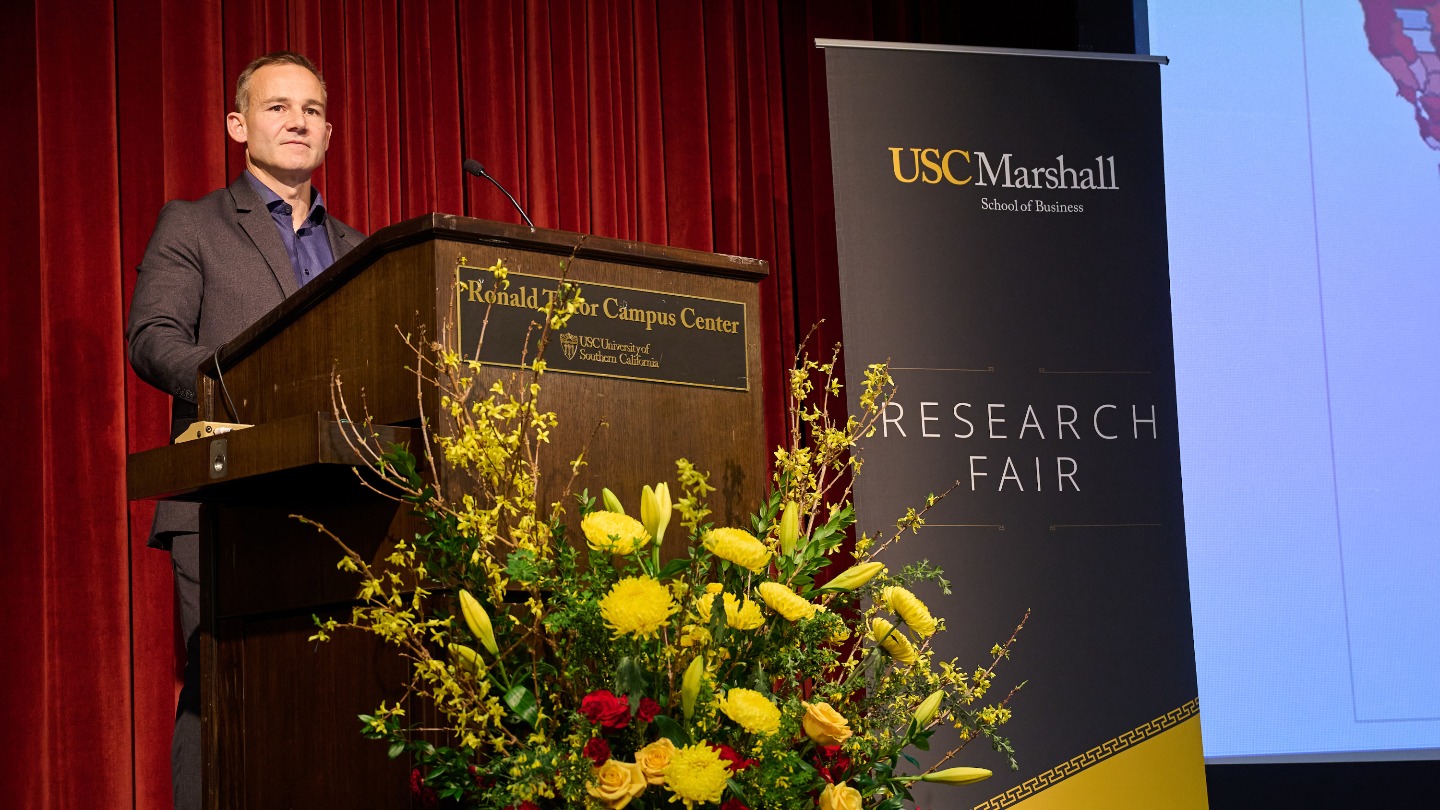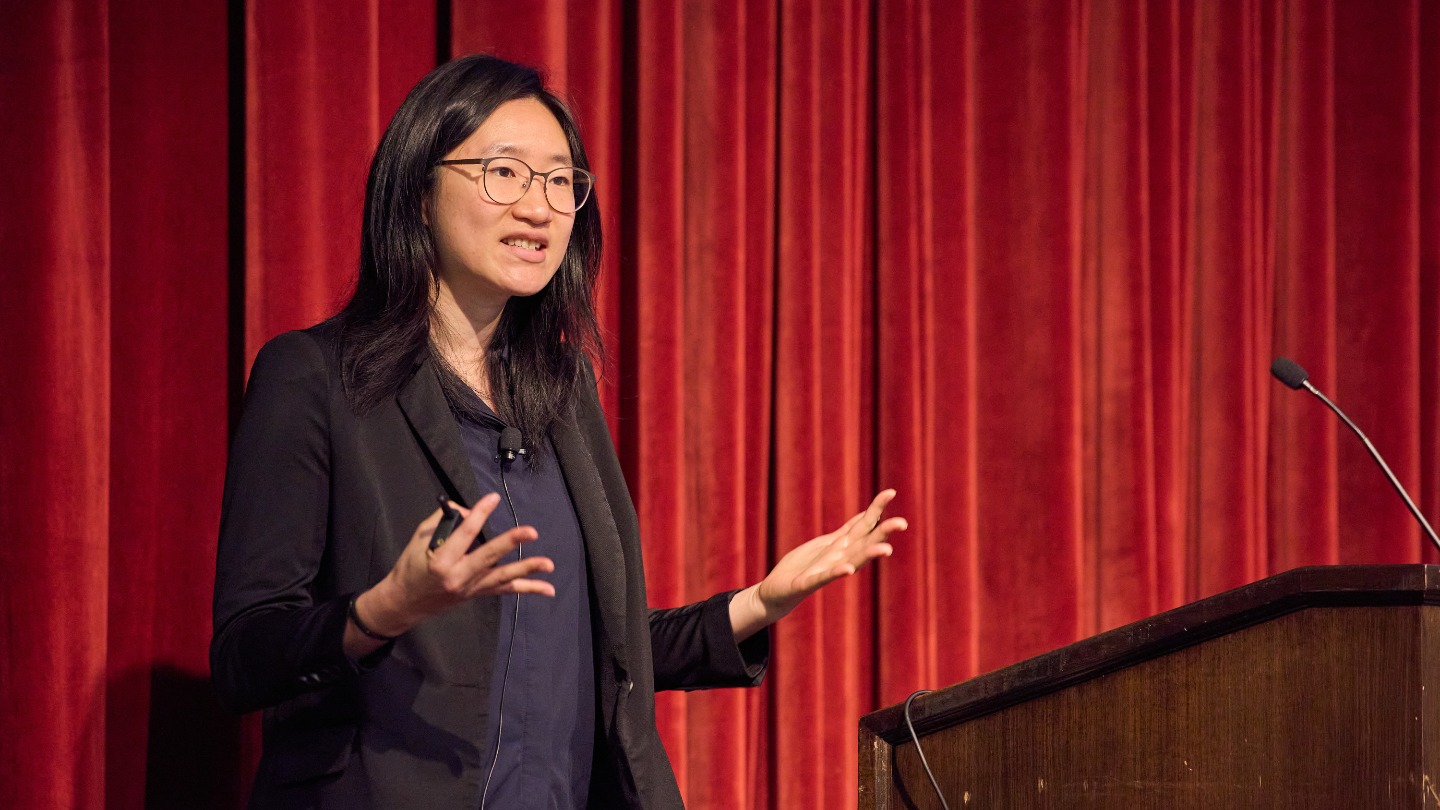On February 23, the annual USC MARSHALL RESEARCH FAIR returned for its seventh year. Five scholars selected from five departments in the Marshall School of Business presented their latest research. The talks provided a chance for the audience to get a firsthand look at the groundbreaking work being done by Marshall thought leaders.
PEER FISS — associate vice dean for research at Marshall, the Jill and Frank Fertitta Chair of Business Administration, and professor of management and organization — provided the fair’s opening remarks. He highlighted the variety of research conducted at Marshall and why events like this are essential to the business school, USC, and the world at large.
“It’s important to celebrate the spirit of inquiry that drives this [fair],” Fiss said in his opening address. “I think you will be inspired by the passion and dedication of your colleagues. All of them really care about what they’re doing and its impact not only on business, but also on society and on the potential to serve the greater good.”
The five presentations covered multiple areas, including finance and business economics, management and organization, accounting, data science and operations, and entrepreneurship. The topics themselves sat on the cutting edge of each presenter’s field.
NAN JIA, Dean’s Associate Professor in Business Administration, offered insights on the increased use of artificial intelligence (AI) in the workplace. Specifically, she highlighted that managers with strong leadership skills were best equipped to utilize the advanced technology to improve employee performance. (An in-depth account of Jia’s study can be found HERE.)
The ensuing presentations captured additional snapshots of the modern business world. SHANE HEITZMAN, associate professor of accounting, presented an overview of trends in banks’ suspicious financial activity disclosures, exhibiting U.S. regions with the highest report rates of suspicious activity and those whose rates have increased most over time.
ANGELA ZHOU, assistant professor of data sciences and operations, analyzed how technology and data can improve decision-making in various industries such as business, healthcare, and policy. Zhou’s research proposed a new framework to optimize decision-making strategies and enhance standard AI and reinforcement learning tools.
“The main idea is to develop methodology that allows us to make use of the imperfect data that we have already while remaining clear-eyed about the underlying ambiguity,” Zhou explained.
Complementing Zhou’s and Heitzman’s data-forward presentations was Assistant Professor of Clinical Entrepreneurship HOVIG TCHALIAN’s talk on the nature of craft authenticity, particularly amidst this emerging wave of new digital technologies. Tchalian examination spanned a wide range, from freshly ground coffee to hundred-year-old Scotch. (The idea of whiskey-based research drew some delight from the crowd.)
Ultimately, Tchalian hoped his research could be used by companies to create more authenticity while crafting their products. He invoked three pillars: provenance, process, and presence, which may guide businesses to tailor their services to a wider audience.
“How is it that firms can adapt flexibly to introduce or include digital technologies in what they do, but still effectively signal authenticity? How do you do that? Because a lot of technology is involved in producing craft products,” Tchalian said. “What I came up with is a framework for how organizations can manage the complexity in their processes in a way that still signals authenticity.”
Closing out the fair was EMILY NIX, assistant professor of finance and business economics. Nix’s work dove headfirst into two controversial issues: the fallout of the #MeToo movement in the workplace; and the benefits and drawbacks of corporations releasing political statements in the wake of the Dobbs v. Jackson Supreme Court decision. The former issue revealed some distressing trends, and Nix hoped her research would provide a foundation for companies to deal with these difficult issues. (An in-depth account of Nix’s latter study can be found HERE.)




